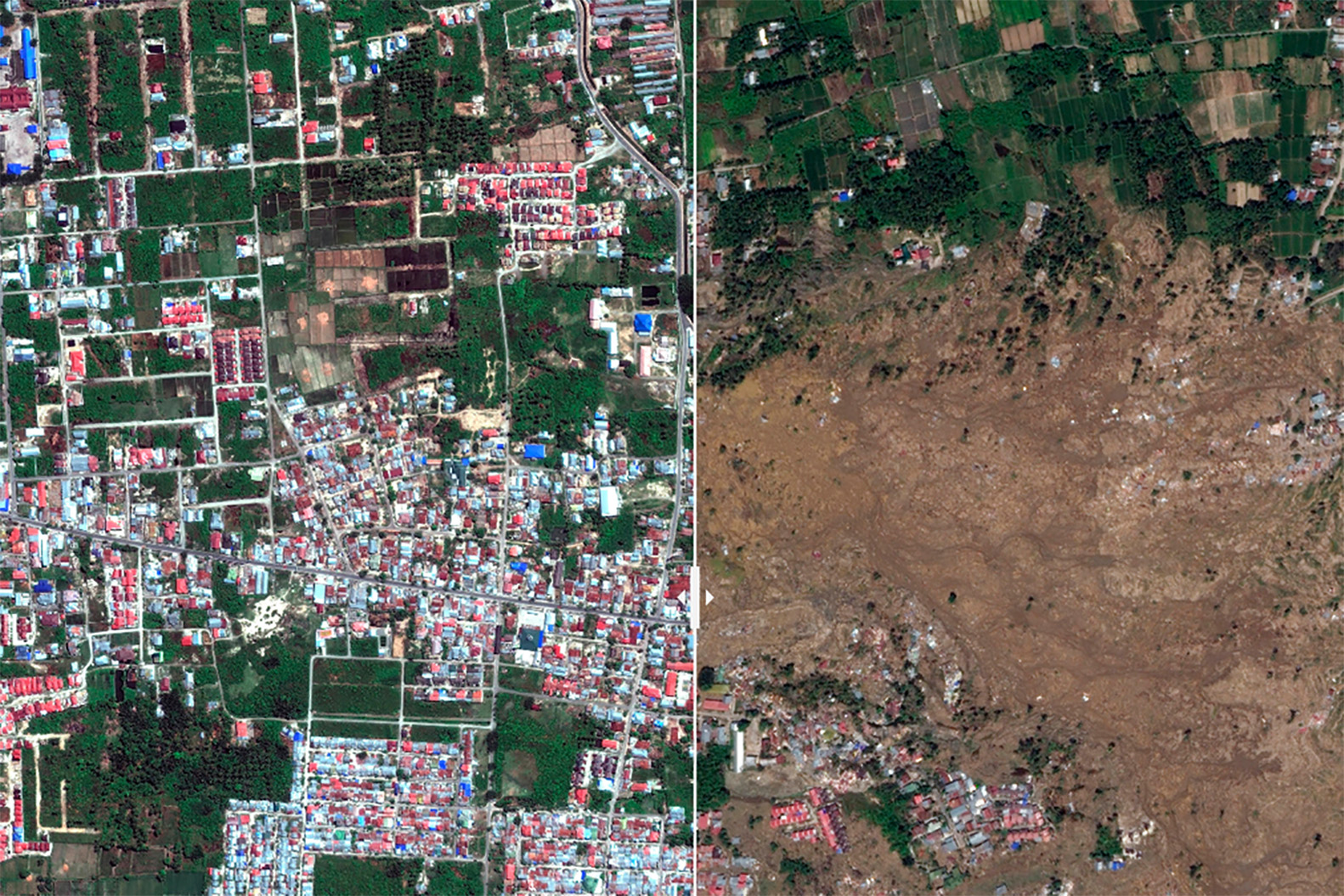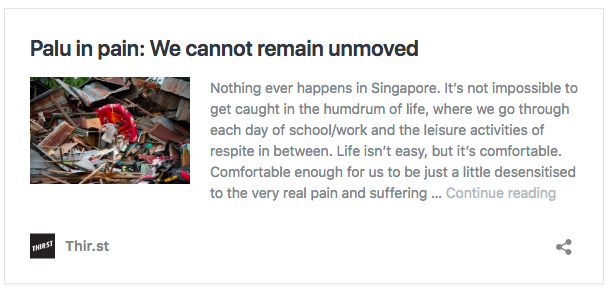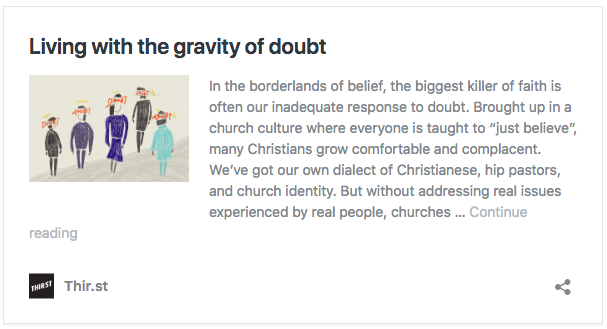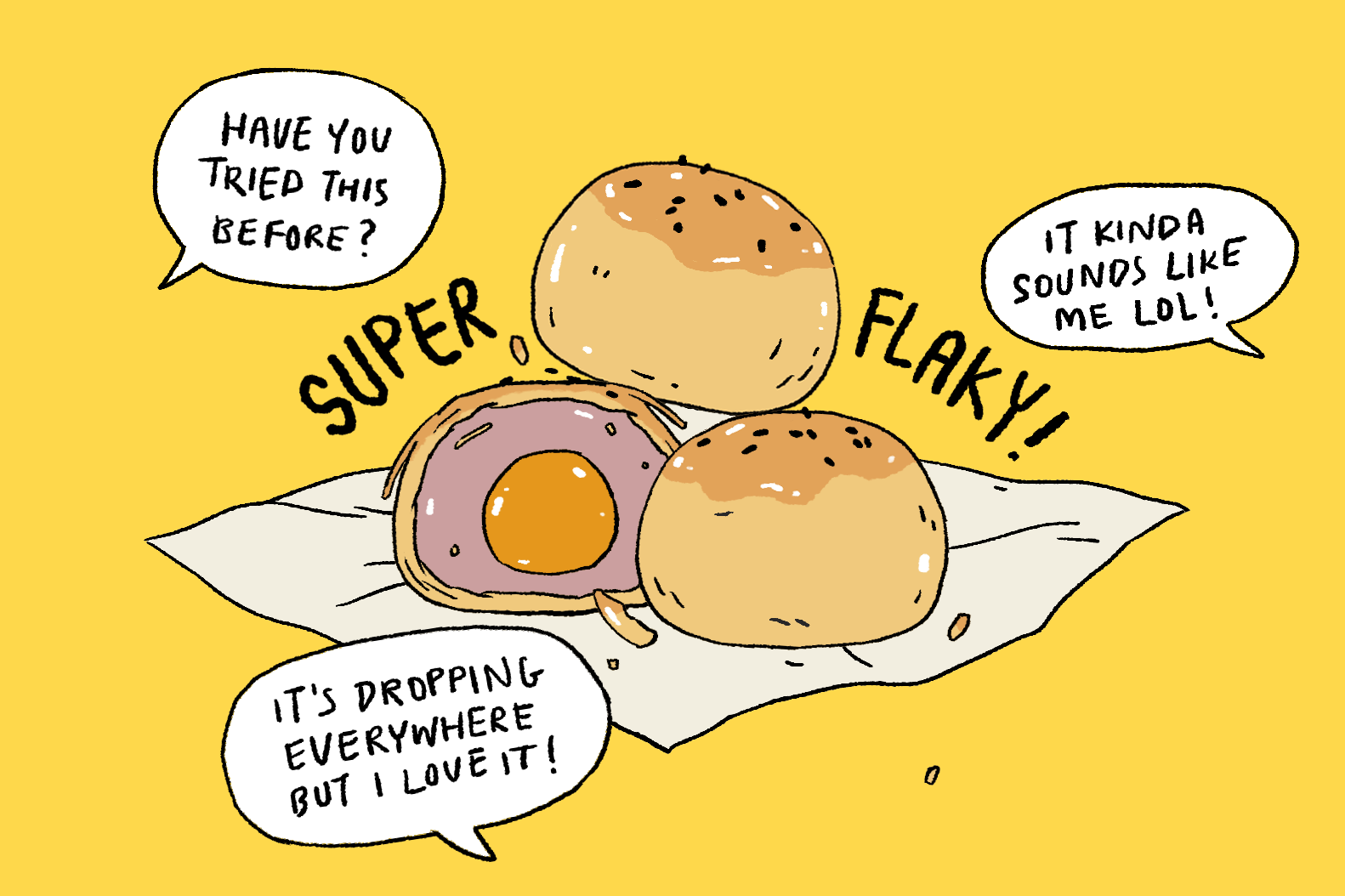I went to Palu with my church, immediately after it was struck by an earthquake and tsunami on 28 September 2018.
We flew in the day after the disaster and took a 20-hour ride into Palu upon landing. We stayed for 10 days and helped the people by setting up a medical post and bringing some joy and relief to the kids there.
Until Palu, I had never come so close to smelling and seeing the dead – the death of thousands was happening right in front of me. The smell was unforgettable; the sight still remains in my mind.
I don’t know how I could have faced such a thing without God.

“From everyone who has been given much, much will be demanded; and from the one who has been entrusted with much, much more will be asked.” (Luke 12:48b)
Though we ourselves were fearful at Palu, the people there looked to us for hope and a glimpse of grace. Amidst the destruction it seemed that we faced with a constant question: Who had the final victory here – was it death or Christ?
What I knew was that we were the only ones who could represent Jesus at that time. We were the only Jesus they could see. Every word or interaction we had with the people there would show the Christ who lives in us.
In a time of great darkness, we became the light of the city. The light that brought down His glory, peace and hope to the people. “Break my heart for what break Yours” wasn’t just a verse in a song anymore, it became real to me.
The devastation caused by the earthquake, mudslide and tsunami had destroyed thousands of lives. Children were orphaned, women were widowed … Men were left with nothing.
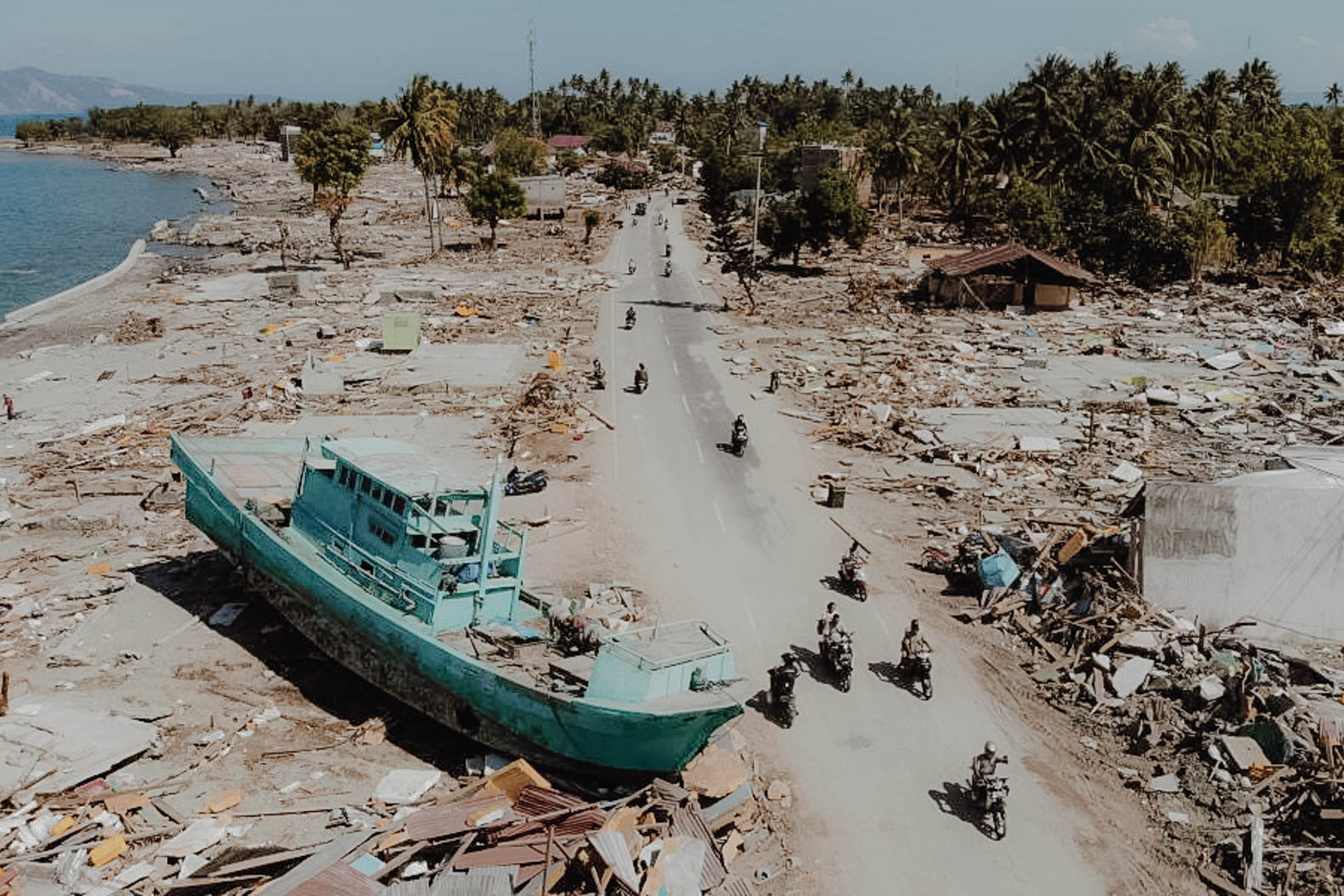
With churning stomachs, we listened to the survivors’ stories.
We told ourselves, “One soul at a time, one life at a time”. Yet in the face of such devastation, we felt utterly powerless. We heard, we saw, we went, we answered … We felt the brunt of this disastrous quake and all the city’s hopelessness.
We prayed, covered, served and fought against the principalities and the spirit of death – we interceded.
I knew the damage was immense, and it would take years to rebuild. But for the people of Palu, I know their scars will be their story to tell. Whatever the devil means for evil, God will turn it around for good.
There is something beautiful in our scars. Instead of being physical imperfections, Jesus’s scars are breathtakingly beautiful. They represent His love for us and how He has saved us. Our scars should tell a similar story.
Sometimes our faith is shaken when our dreams are shattered.
We wonder where God is in the midst of our suffering. We cannot sense His presence. We feel alone and afraid. Our faith wavers. We question what we have long believed. We wonder what is real, especially when present circumstances don’t match up to our expectations.
Such wavering deeply troubles us. We have tasted God’s goodness, enjoyed close fellowship with Him and rested in His tender care. We have known both His power and His love.
Yet in the midst of profound struggle, we have no answers. Just questions.
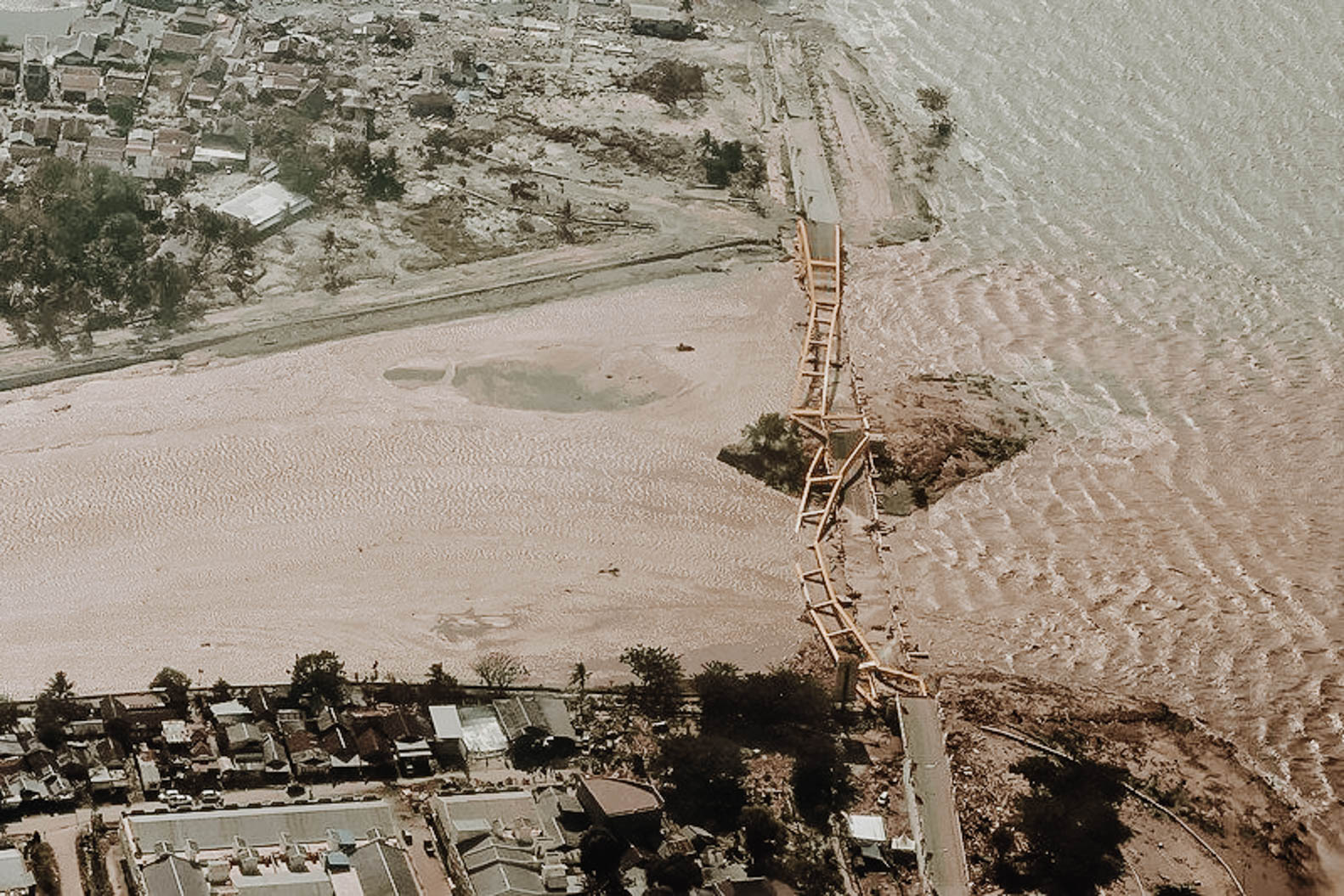
John the Baptist understood this struggle as he waited in prison.
He, above all men, knew who Jesus was. And even in the womb he was filled with the Holy Spirit, joyous at the coming of the Saviour. At the beginning of Jesus’ ministry, before any of His miracles, John declared, “Behold, the Lamb of God, who takes away the sin of the world!” (John 1:29).
He baptised Jesus and saw God’s Spirit descend on Him, testifying that Jesus is indeed the Son of God. And yet, at the height of Jesus’s ministry, John sent word to Him from prison, asking, “Are you the one who is to come, or shall we look for another?” (Matthew 11:2-3).
At one point, John was sure that Jesus was the Messiah. Jesus further confirmed His divinity by performing miracles, yet John was now wondering what was true … Why?
“A bruised reed he will not break, and a smoldering wick he will not snuff out. In faithfulness he will bring forth justice;” (Isaiah 42:3)
John knew from Scripture that He who gave the blind sight, made the lame walk, and preached good news to the poor could surely open “the prison to those who are bound” as prophesied in Isaiah 61:1.
But Jesus didn’t do that for John; John did not get busted out of jail like Peter and Silas.
So perhaps at this point, John doubted what he knew. If Jesus was indeed the Messiah, John probably expected to have a role in Jesus’ earthly kingdom.
He wouldn’t have expected to start with such a high calling – preparing the way of the Lord in the wilderness – only for his life and ministry to end in a small prison cell.
Besides, John preached that the Messiah would come with an unquenchable fire. With judgment. With power. So he likely expected to see these things in his lifetime, and may have doubted when he didn’t.
But Jesus didn’t condemn John for his doubt.
He even said that no one greater than John had ever lived. He understood why John asked that question. And Jesus’ response to him reinforced what John already knew: Jesus is indeed the Messiah.
At the same time, Jesus knew that John’s public ministry was over. Just like the saints in Hebrews 11, John wouldn’t see all of God’s promises come to pass but could only greet them from afar. He would not serve with Jesus on earth or see the fulfilment of God’s Kingdom.
But one day he would. One day he would see his glorious part in God’s magnificent plan. He, the last of the old covenant prophets, would see how God used him to prepare the world to receive Jesus. And John would rejoice.
In this life, we may never see how God is using our trials. But one day we will be grateful for them.
But for now, John had to accept the Messiah’s plans for his life.
Plans that were different from what he envisioned. He had to dwell on what he knew to be true rather than fixate on his circumstances. He had to remember who God is and trust Him from within a dark prison.
And it’s the same with us: When our plans and dreams crumble, will we still trust in God’s infinite wisdom? When our cup of suffering seems too much to bear, we need to rest in His immeasurable love.
When life spins out of control, we need to remember God’s absolute sovereignty. We may not understand what is happening, but we cannot stop talking to Him or turn away in fear. We must simply go to Jesus and tell Him about our doubts, asking Him to help us see.

John’s doubts are very similar to ours. Especially in times of disaster, we are prone to wonder if God is who He says He is and if everything really is under His control.
But when we doubt, God calls us to trust what we know to be true. He brings us back to the bedrock principles we know from Scripture and experience – that God is completely sovereign, loving and wise. Not a single sparrow will fall to the ground outside of the Father’s care (Matthew 10:29).
In this life, we may never see how God is using our trials. But one day we will be grateful for them.
All we can do now is trust that He who made the lame walk and the blind see, who died on a cross so we could spend eternity with Him, is going to do the very best thing for us.
It all comes down to trust. Will we trust in mere circumstances that constantly change? Or will we trust in an eternal and unchanging God? On Christ the Solid Rock we stand. All other ground is sinking sand.
Palu, from the ashes, you will rise again.


